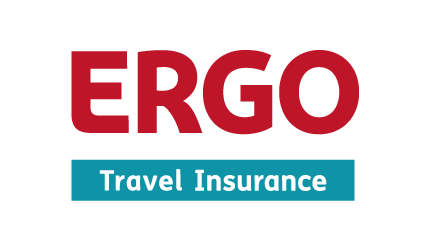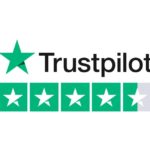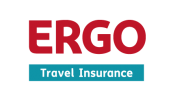Anti-Slavery and
Human Trafficking Statement
ERGO Travel Insurance Services Anti-Slavery and Human Trafficking Statement
ERGO Group AG Statement on the UK Modern Slavery Act
This statement is made pursuant to section 54 (1) of the UK Modern Slavery Act 2015 and constitutes ERGO Group AG‘s (including its German subsidiar- ies) slavery and human trafficking statement for the financial year ending
31 December 2023.
The organisation’s structure, its business and its supply chains
ERGO is one of the major insurance groups in Germany and Europe. With operations in over 20 countries, the ERGO Group offers a comprehensive spectrum of insurance, provision and services. In the financial year 2023, ERGO recorded a total premium income of 20 billion euros. It operates in all lines of primary insurance, with about 38,600 employees and sales agents throughout the world. At the end of 2023, the ERGO Group’s investments amounted to around 136 billion euros. They are mainly managed by MEAG1 as the joint asset manager of Munich Re and ERGO which also makes its competence available to private and institutional investors out- side the Group.
ERGO Group procures many different goods and services throughout the world. Buying at best total value in terms of quality, time and costs, while ensuring compliance, the procurement func- tions throughout the Group seek to make a substantial and lasting contribution to the success of ERGO Group.
Group policies in relation to human rights
Respect for human rights is a part of our management approach to include economic, environ- mental and social challenges in our definition of success. The Board of Management has accordingly issued a declaration to respect and protect human rights. It can be found on the ERGO web- site. This statement underscores ERGO Group’s commitment to human rights, as defined in the UN Guiding Principles on Business and Human Rights, in the International Bill of Human Rights and in the ILO’s Declaration on Fundamental Principles and Rights.
ERGO has undertaken to apply its respective due diligence and to respect internationally recognised human rights. By signing the UN Global Compact in 2007, we have committed ourselves to the following principles:
- Promoting and protecting internationally recognised human rights within our scope of activity
- Taking precautionary measures designed to prevent Munich Re from contributing to hu- man rights violations, for example human trafficking
- Upholding the freedom of association and the effective recognition of the right to collective bargaining
- Supporting the elimination of any kind of forced or child labour
- Helping to put an end to discrimination in hiring and employment
ERGO Group AG
Chairman of the Supervisory Board: Dr. Joachim Wenning Board of Management: Dr. Markus Rieß (Chairman)
Robin Johnson, Mark Klein, Edward Ler, Dr. Lena Lindemann, Dr. Ulf Mainzer, Heiko Stüber
Registered office: Düsseldorf – Commercial Register:
District Court Düsseldorf, HRB 35798, Tax ID no: DE192302697
Office address:
ERGO Group AG,
ERGO-Platz 1, 40477 Düsseldorf
Internet:
These principles are also enshrined in our Code of Conduct, compliance with which is mandatory for all ERGO staff. This reflects our Group-wide, shared understanding of the value of respecting human rights.
In addition to our commitments to this standard and others specified by the Principles for Sustain- able Insurance (PSI) and the Principles for Responsible Investment (PRI), our Group have imple- mented a due diligence process that covers our commitment to following guidelines:
- UN Guiding Principles on Business and Human Rights
- International Bill of Human Rights, consisting of the:
- Universal Declaration of Human Rights
- International Covenant on Civil and Political Rights
- International Covenant on Economic, Social and Cultural Rights
- ILO Declaration on Fundamental Principles and Rights at Work
With our due diligence processes to prevent and mitigate human rights abuses, we strive to comply with the requirements of these standards and guidelines as well as the requirements of the German Supply Chain Due Diligence Act.
Assessment of human rights risks
ERGO Group’s management is committed to preventing its business from having any potentially negative impact on human rights. In order to systematically monitor any such effects, the following four aspects have been defined: employees, procurement, our core business of primary insur- ance and investments.
Measures to manage human rights risks
Our corporate due diligence requirements are set out in various guidelines, codes and work instructions. The processes include the following components:
- A risk management system with clearly defined processes and responsibilities:
- Regularly conducting risk analyses
- Embedding preventive and remedial measures in our business units
- Monitoring and reviewing the effectiveness of measures
- Grievance mechanism (whistleblowing management system)
- Documentation and reporting
In the event of increasing risks or concrete evidence of potential human rights violations, such risks or violations are either revealed in the course of our monitoring or supplied to us via our whistleblowing channels. We carefully review the facts and initiate the preventive or remedial measures needed in order to avoid, end or mitigate the violation in question. In line with govern- ance processes, depending on the severity of the breach, the Reputation and Integrity Committee, which is also responsible for assessing ESG risks, will be involved in the decision.
With the help of a structured risk analysis, we check which business units or activities could be exposed to an increased risk of human rights violations or environmental harm.
These risk analysis processes have been implemented within the four dimensions of employees, procurement, our core business of primary insurance and investments. In addition, risk analyses are carried out on an ad hoc basis in response to significant changes in the risk situation, such as expansions into new business areas or product offerings, or if we become aware of related breaches of duty on the part of our suppliers.
The risk analysis is based among others on a country-and-sector list that we compile and regularly update, drawing on external databases to do so. We also use this to screen new and existing
business relationships where relevant and, if necessary, initiate preventive or remedial measures.
a) Measures for each risk dimension
The processes we developed to comply with human rights due diligence obligations are continuously revised and expanded. We have defined the following processes, which are reviewed annually:
- Commitment by management to comply with human rights
- Appointment of a Human Rights Officer for the Group and further by the German Supply Chain Due Diligence Act affected subsidiaries of ERGO Group
- Structured identification and assessment of risks with regard to human rights violations
- Implementation and monitoring measures
- Annual reporting and communication
- Support and grievance mechanism
Staff and non-staff can use ERGO Group’s whistleblowing portal to report possible or actual human rights violations. If a human rights violation is reported, or we otherwise learn of one, ERGO Group’s dedicated Compliance or Human Resources units will investigate. Every potential case is investigated in accordance with a procedure set out in internal guidelines. Every potential case of misconduct will be investigated and resolved. If we learn of substantial human rights violations in an existing contractual relationship, we decide on appropriate and effective remedial action in dialogue with the responsible parties.
Moreover, we endeavour to decline any business relationship with, and exclude investments in companies that have been involved in confirmed and substantial violations of humans rights. For this purpose, a list of companies with which we want to exclude business has been developed in a multi-stage process based on information from external data providers. This list is regularly reviewed, updated and adopted as part of our ESG governance. We began applying these policies to our investments, to procurement and to business in primary insurance in the course of 2023.
For each aspect (employees, procurement, our core business of primary insurance and investments), we have introduced instruments, which allow us to manage our respective decision-making processes in terms of human rights. This enables us to minimise risks regarding human rights violations as far as possible.
Employees
As an employer, we are committed to complying with international human rights standards and creating adequate working conditions for our staff such as transparent remuneration conditions, flexible working conditions and working-time models. Our Group-wide Diversity Policy sets down the most important principles in this action field and forms the basis for overarching and comprehensive diversity management.
An annual risk analysis and assessment serves to identify human rights risks within our workforce. We assess potential risks and, if necessary, take action to prevent them.
Our Code of Conduct as a set of binding rules for all our staff members explicitly states that Mu- nich Re (and thus also ERGO) does not tolerate any kind of discrimination in respect of employment and occupation and upholds the freedom of association and the effective recognition of the right to collective bargaining.
Procurement
In our procurement decisions and activities, we aim to adhere to compliance principles and thus assume corporate responsibility along the value chain. Environmental, social and governance (ESG) criteria play an important role for us in the procurement of goods and services.
We have established appropriate procurement principles for working with our suppliers. We had previously required our suppliers to accept the principles of the UN Global Compact. By adopting
a Group-wide Supplier Code of Conduct, we have made our expectations for human rights compliance even clearer. Accordingly, the vast majority of procurement contracts within primary insurance will include a corporate responsibility clause. This serves, among other things, to formalise ERGO Group’s human-rights-related requirements for suppliers and, if necessary, to have audit and special termination rights in the event of a breach.
Our risk analysis determined that, given the nature of the goods and services we procure, there is only an increased risk of human rights violations among our suppliers in a few categories. The structured and continuous risk analysis process that we are currently introducing will allow us to even better identify potential human rights violations in future, and to mitigate or avoid them accordingly. Substantial cases are discussed in dialogue with the responsible parties and remedial measures are taken if necessary.
Insurance
In addition to taking into consideration the above exclusion list of companies that have been in- volved in confirmed and substantial violations of human rights, we updated our underwriting guidelines for primary insurance in the 2023 reporting year to include an enhanced risk analysis for certain large commercial business clients. The focus here is on client groups for which – given their geography and sector – structural factors contribute to an increased risk of human rights violations.
Should in this context significant reputational or human rights risks be identified in the underwriting process, the underwriting guidelines stipulate an extended review process, and risks may need to be presented to the Reputation and Integrity Committee prior to acceptance.
Investment
As part of a sustainable investment, government bonds (including the sub-sovereign level) and notes from government-related institutions rated CCC under the MSCI ESG Rating scale are excluded, due to high risks related to socio-economic or political factors. Such MSCI ESG Ratings also take human rights into account. Our Responsible Investment Guideline has been updated to include human rights standards, among others. Exclusions also apply to these asset classes if, on the basis of a specific country rating for human rights, their risk exposure is extreme. If the risk exposure is high, the portfolios of assets in question are monitored.
The list of companies we exclude due to their significant human rights violations is also used in our investment business, where application of the exclusion lists is mandatory for our asset managers.
We have integrated human rights into our due diligence process for our alternative investment activities, particularly for the asset classes of infrastructure, direct investments in forestry and farming, and direct real estate.
As a responsible investor, we also support the international conventions addressing controversial weapons (including but not limited to the weapon categories anti-personnel mines and cluster munition) and exclude any direct investment in equities or bonds from companies active in those sectors.
b) General measures Grievance mechanism
The compliance whistleblowing portal of ERGO Group allows employees, clients, suppliers and other business partners to report potential or actual human rights violations. Whistleblowers can access the portal by using the internal web or the publicly accessible company website. Employ- ees can also report incidents to their direct managers, the Compliance Officer or the independent external ombudsman. This means that relevant information can be passed on safely, confiden- tially and, if desired, anonymously, worldwide and around the clock.
The platform can be used to report possible violations involving corruption, financial sanctions, fraud, antitrust, regulatory framework, money laundering, tax compliance, sales compliance, in- sider trading, data protection and also those related to human rights or personnel (e.g. gender discrimination, sexual harassment, diversity or violations of the principle of equal treatment).
Our Company investigates the matter if we become aware of a possible human rights violation. The investigations to be initiated and the procedures are defined and set out in an internal set of rules. Every possible case of misconduct is investigated and clarified. If we learn of human rights violations in an existing contractual relationship, we enter into dialogue with the relevant stake- holders and pursue remedial measures.
Raising awareness: Training and capacity building on human rights
In order to raise staff awareness, familiarise them with the key compliance rules and help them understand the importance of following these rules at work at all times, employees re-certify their knowledge of the Code of Conduct regularly. This training course includes information on equal treatment, reporting of infringements, data protection and fraud.
The “ESG Basics”, a Group-wide ESG awareness-raising measure, is aimed at all employees. It includes the ESG criteria relevant to our business success, such as climate and environmental aspects, social criteria such as working conditions and human rights, compliance and governance requirements.
Progress in the financial year 2023
We will continue to work on the implementation of human and labour rights aspects and to con- sider our obligations under the UK Modern Slavery Act 2015.
ERGO adopted an overall guideline on respecting human rights in our core business, which was introduced and implemented in all units affected by the legal requirements of the German Supply Chain Due Diligence Act (GSCDDA) in the 2023 financial year. The guideline sets out the basic human rights compliance requirements for employees and suppliers across the Group and de- fines how we address human rights risks in our business operations. With the standards estab- lished in the guideline, we aim to fulfil our duty of care, and work to ensure that human rights are respected by all companies within our Group. In accordance with the requirements of the GSCDDA, this also includes the appointment of a human rights officer for ERGO Group.
In addition, we have strengthened our due diligence process in our primary insurance in the course of 2023. The process had already been developed and piloted in the previous year and will help us to even better identify, analyse and assess potential risks to human rights.
With the introduction of a group wide process in 2023 we endeavour to decline any business relationship with, and exclude investments in, companies that have been involved in confirmed and substantial violations of human rights. This has been applied to our investments, to procurement and to business in primary insurance.
Our goal is to continuously improve our compliance-related processes and expand our risk assessment. Our risk management processes and risk analysis are reviewed periodically.
This Statement has been approved by the Board of Management of ERGO Group AG on 7 May 2024. Düsseldorf, June 2024
Dr. Markus Rieß
Chairman of the Board of Management ERGO Group
1 MEAG comprises MEAG MUNICH ERGO AssetManagement GmbH – which manages financial and property portfolios and provides investment consultancy exclusively for Munich Re Group companies and MEAG MUNICH ERGO Kapitalanlagegesellschaft mbH, which manages segregated and retail funds with varying investment focuses and renders bespoke investment management services for non-Group institutional investors outside the USA.


